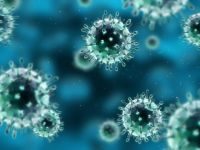St. John’s Wort has broad-spectrum antiviral properties against HIV and influenza, and antimicrobial properties against Staph, Strep and E. coli
Antiviral Properties

In vitro and in vivo studies have demonstrated that Hypericum constituents may possess antiviral properties. In vitro studies suggest that Hypericum constituents have antiviral activity against cytomegalovirus, herpes simplex, human immunodeficiency virus type 1, influenza virus A, Moloney murine leukemia virus, and sindbis virus. An in vivo study in mice found that low doses of hypericin and pseudohypericin prevented retroviral-induced diseases.
Studies indicate that hypericin, one of the active components of St. John’s wort, inhibits the capability of the offspring of certain viruses to replicate. Additionally, it was found that hypericin also appeared to directly inactivate the replication process of certain viruses that previously had the capability.
Viruses studied include human immunodeficiency virus (HIV),herpes simplex virus types I and II, Epstein-Barr virus (EBV) and influenza types A and B.
Antibacterial Properties
Hypericin in St. John’s Wort also appears to have broad-spectrum antimicrobial activity. The organisms studied include Staphylococcus aureus (Staph), Streptococcus mutans (Strep) and Escherichia coli (E. coli).